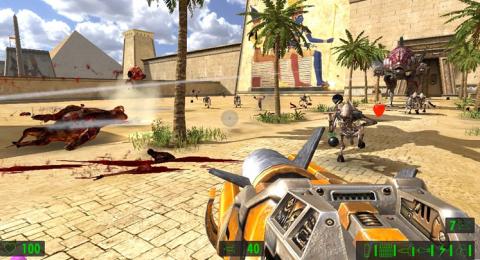
ATI plans for console domination are slowly becoming clearer. It is a well known fact that the Canadian graphics company is actively pursuing some form of deal with Microsoft on the next XBox. A deal which would mean ATI would displace XBox's current graphics supplier and long time rivals nVidia.
Beyond any XBox dreams which ATI may have, they are already established as the producer of the graphics hardware of Nintendo's GameCube. Their Flipper chip has proved itself an efficient graphics solution for a demanding next generation console as is the GC. This leads to ATI's announcement which, in a very laconic fashion, claims that it has entered into a technology development agreement with Nintendo. Under the agreement, ATI and Nintendo are developing technologies for use in Nintendo products. No other details regarding the nature of this agreement are being made available at this time. It is however, obvious that the deal involves GC's successor.
While ATI is moving rapidly trying to claim as many consoles as it can, nVidia seem to be slowly distancing themselves from any such ventures. Their experience with Microsoft has left them just a little traumatised and the legal battle with MS concerning XBox could not have helped things much.
nVidia CEO, Jen-Hsun Huang recently denied the possibility of a new partnership with Microsoft on an XBox 2 siting technical and engineering difficulties as the reason. Huang also suggested that Sony's new console project, the PS3, would almost certainly run into enginnering problems itself since the cell structure may look goos on paper but will be extremely tricky to manufacture.
If nVidia do decide to discontinue any XBox partnership and to distance themselves altogether from the console side of the business it will probably mean that they will be trying to focus their efforts on the rest of their range. On the other hand ATI seem comfortable enough chasing any console deal possible and maintaining their forward momentum in the desktop field. So if ATI feel that they are not stretching themselves too thin and that they can cope as a company, why would nVidia, a veteran in the field, choose not to do the same? Is it just a case of the enthusiasm of the newcomer getting the best of them or do the people at ATI know something nVidia doesn't?








